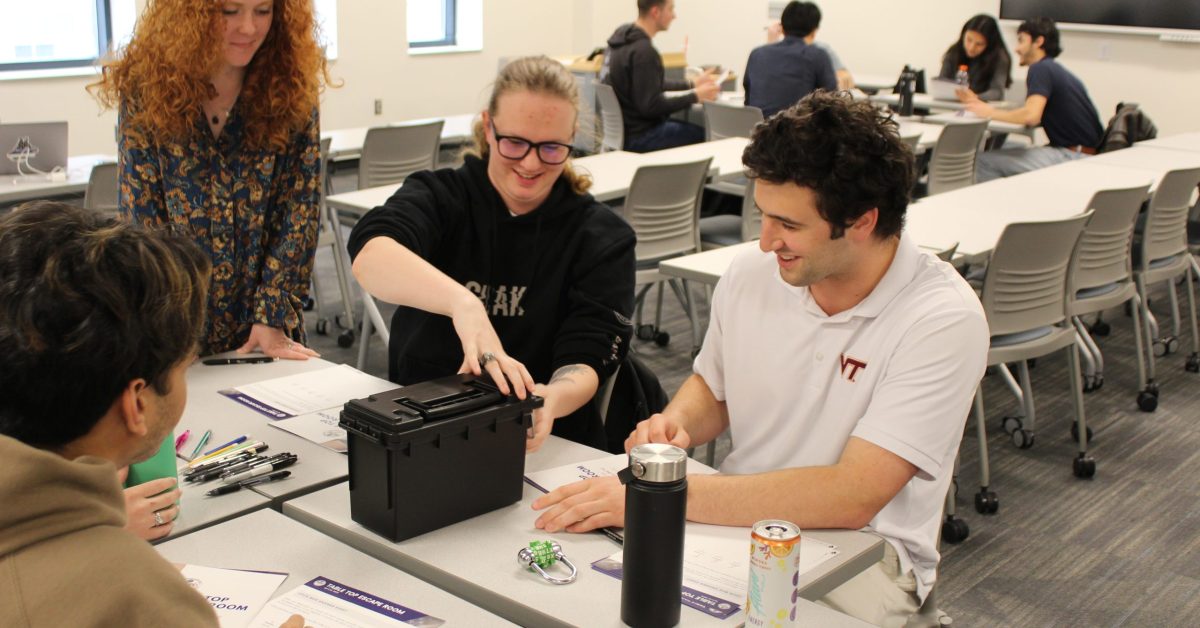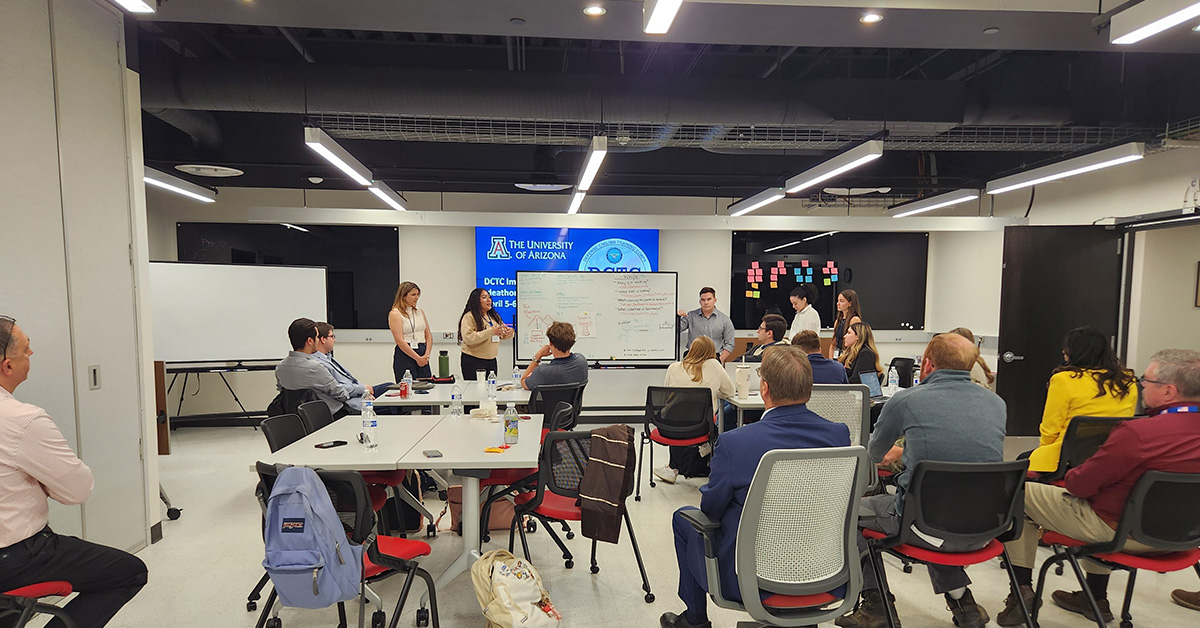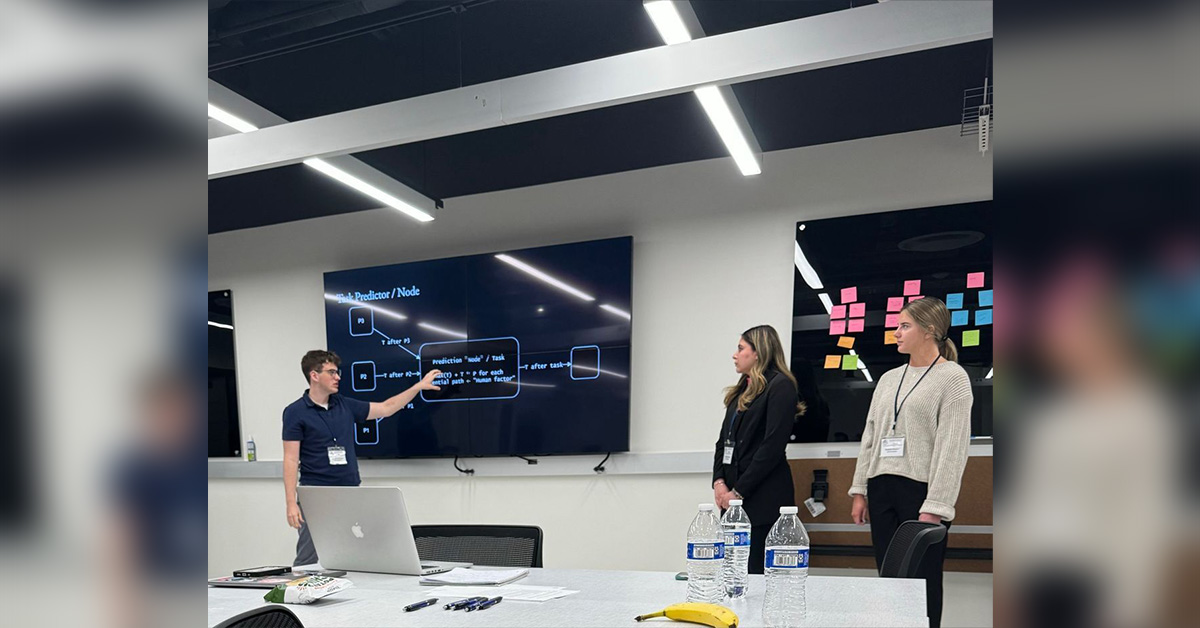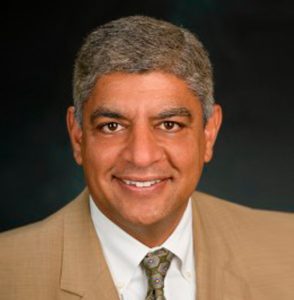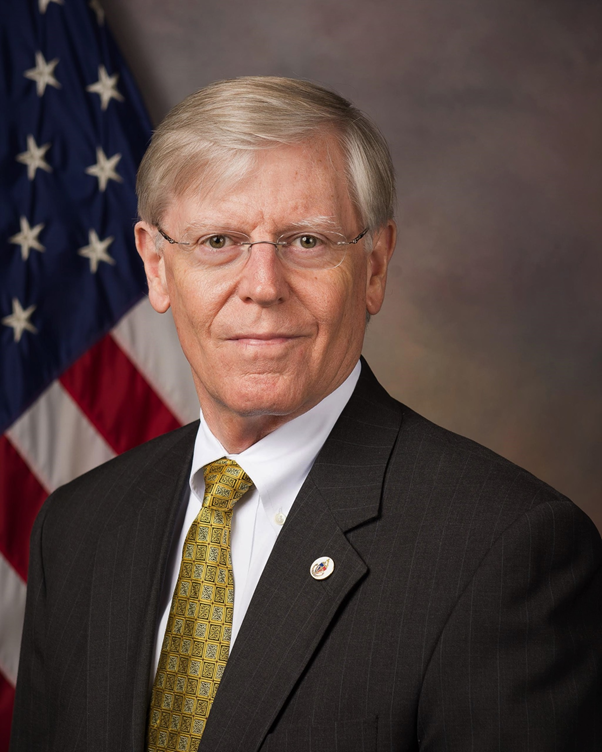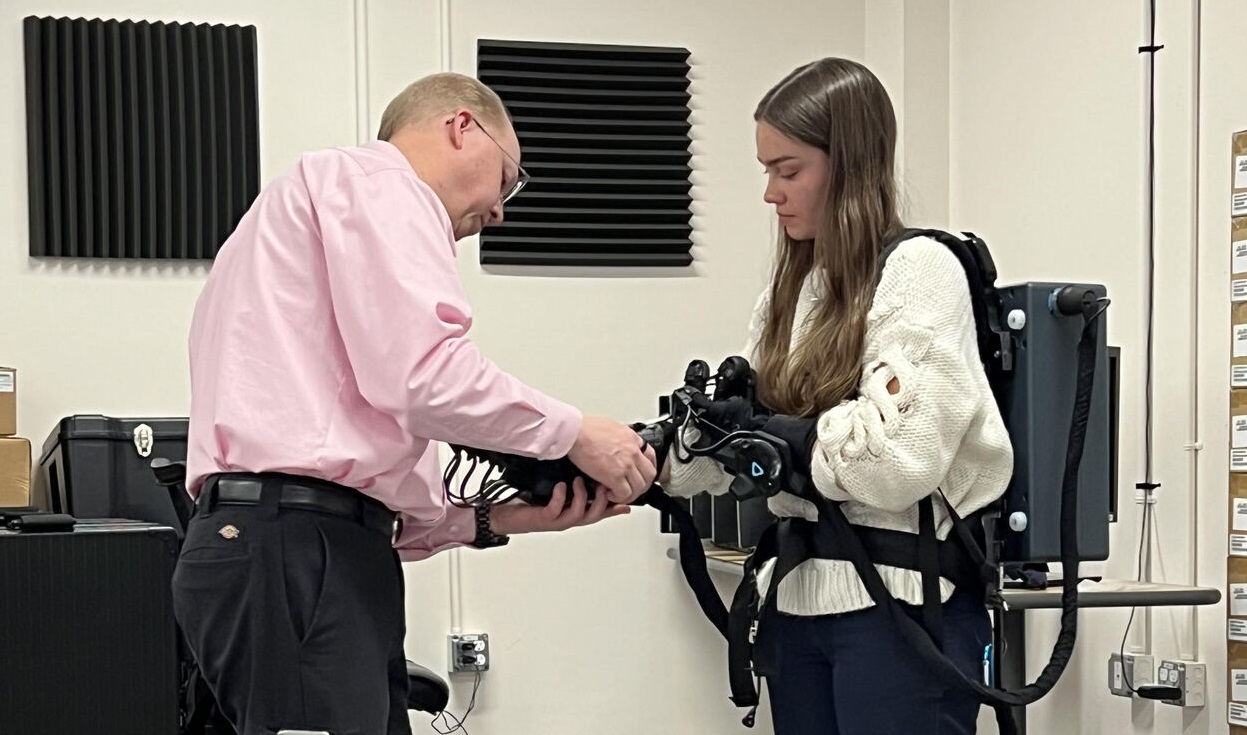
Arizona Scholars Visit Fort Huachuca Technology Innovation Facility
February 26, 2024
This blog entry is a guest post from DCTC scholar Katlind Nearing of the University of Arizona.
This February, my peer scholars and I participated in an AR/VR tour of the Fort Huachuca Technology Innovation Facility, or as they call it, “the SHOP.” The site visit was arranged by our Defense Civilian Training Corps faculty to give us a hands-on opportunity to learn about DoD efforts to embrace innovation.
The first thing I noticed as we drove up to the site was that, much like all of Arizona, nothing but dirt and plants struggling for life surrounded us. It certainly did not look like a place that was holding an entire virtual reality lab with the newest technology and extraordinary potential. As I stepped into the VR lab, I was immediately struck by the futuristic ambiance. There were shelves of sleek VR headsets and motion controllers screaming to my inner child wanting to try them all. Technology Innovation Program Manager John Grant sat us down and briefed us on some of the capabilities housed.
I was fortunate enough to test out the Haptics glove VR set, and as I attempt to describe it, please use your imagination. They placed a backpack (containing the controller), gloves that had individual tubes leading to the air compressor, and the headset on my head. I played a small demo where I picked up/touched certain items and I could feel the items as if I was touching them in real life. As I experienced this, it made me think about other possibilities. Specifically, the advancement of my studies in the veterinary science field. It would be advantageous to all medical fields if students could put on a VR helmet and have a “real” corpse lying on a table, look at the different anatomical parts, and explore it. The ability to immerse all students in dynamic, interactive learning simulations similar to the demo I participated in, creates the potential to revolutionize education and ignite a passion for discovery.
I interviewed my peer scholar, Michael Morales, a business management major, to gain a diverse perspective. His insights resonated with me as he adeptly highlighted the transformative capabilities of VR in his field, emphasizing the potential benefits of implementing VR into the future of telecommunications. He referred to the capabilities as “underappreciated and underrated” and I could not help but agree. Michael articulated a compelling perspective on how the field trip blended his business acumen and his love for video games transcending into a feeling of “work and professionalism doesn’t have to be so serious all the time.”
In essence, my conversation with Michael combined with my personal experience on the tour served as a poignant reminder of the importance of embracing diverse viewpoints while ultimately enriching our collective understanding and appreciation of the possibilities that lie ahead. Innovation doesn’t always necessitate a wearisome, strictly professional demeanor but can foster a sense of playfulness and creativity, leaving me with a sense of wonder and excitement for the future.
